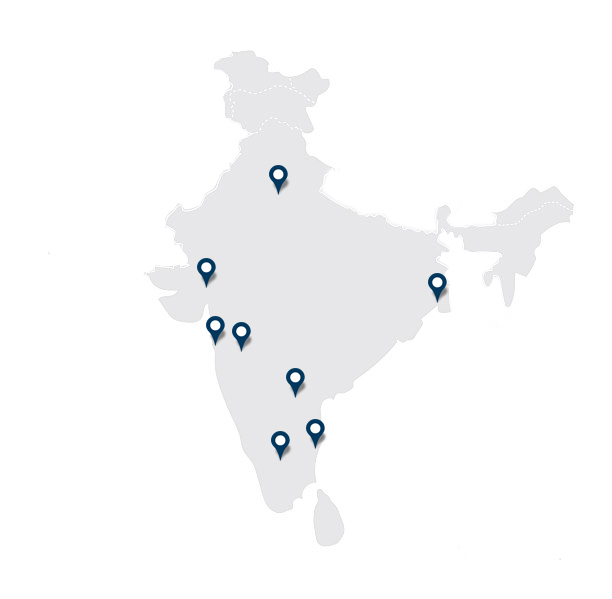Introduction
Dubai’s reputation as a study destination has evolved remarkably over the past decade, drawing the attention of students from every corner of the globe. Once known primarily for its dazzling skyline and thriving business scene, the city is now home to more than 40 international branch campuses and a student population representing over 120 nationalities. The question, is Dubai a good place to study, has become increasingly relevant as the city’s higher education sector continues to expand at a rapid pace, with international students now making up more than a third of enrolments in private universities.
Dubai’s appeal lies in its blend of world-class academic institutions, modern infrastructure and a multicultural environment that fosters both personal and professional growth. The city’s universities are recognised for their global standards, offering programmes in English and maintaining strong links with industry, which translates to real-world opportunities for students. Safety, a high quality of life and a supportive ecosystem for international students further enhance Dubai’s standing as a compelling choice for those seeking a truly global education experience. For anyone considering their options, is Dubai a good place to study is a question worth exploring in depth.
From the city’s dynamic academic landscape to its vibrant student life, Dubai offers a host of advantages that go far beyond the classroom. As we explore why so many choose Dubai for higher education, the reasons become as diverse as the city itself.
Why Choose Dubai for Higher Education
1. Quality Education Standards in Dubai
The UAE has set robust quality benchmarks for its universities, ensuring that students benefit from internationally recognised degrees and meticulous academic oversight. Regulatory bodies such as the Knowledge and Human Development Authority (KHDA) and the Commission for Academic Accreditation (CAA) enforce strict standards for curriculum, faculty qualifications and institutional governance. Many universities in Dubai are international branch campuses, required to maintain parity with their home institutions in terms of teaching quality and programme delivery. This means that students often experience the same academic environment and degree recognition as they would at the parent university, but with the added advantage of Dubai’s unique global perspective.
What does this mean for students? A degree from Dubai isn’t just a piece of paper—it’s a passport to global recognition, state-of-the-art learning tools and real-world career readiness. Universities here don’t just follow trends; they anticipate them, constantly refining programmes to match the demands of tomorrow’s job market. Graduates don’t just leave with a diploma—they step into the workforce with a competitive edge.
For students, this means real-world advantages: degrees that hold weight worldwide, access to the latest learning tools and a practical focus on career readiness. Dubai’s universities don’t just teach theory – they work closely with industries to shape courses that prepare graduates for the jobs of tomorrow.
2. Diverse and Evolving Universities
Dubai’s academic landscape is remarkably diverse, with over 40 private higher education institutions and more than 35 international branch campuses representing countries such as the UK, Australia, India and the US. The city’s universities are not static—they are constantly evolving, expanding their offerings and investing in state-of-the-art facilities. For example, institutions like Canadian University Dubai have recently opened new campuses and introduced innovative programmes to meet the demands of a growing student population.
This diversity benefits students in several ways. It creates a multicultural learning environment where more than 120 nationalities are represented, fostering cross-cultural understanding and global networking. The rapid growth in student enrolment—up by 20% in the last academic year—reflects the increasing trust in Dubai’s education sector and its ability to adapt to changing global trends. Students are exposed to a wide range of perspectives, teaching styles and extracurricular opportunities, making Dubai’s universities vibrant places to learn and grow.
3. Excellent Career Prospects for Graduates
One of the most compelling reasons to consider Dubai is the city’s strong focus on career outcomes. Dubai’s economy is among the fastest growing in the world, with thriving sectors in finance, technology, tourism, healthcare and logistics. Universities maintain close ties with industry, offering students access to internships, job placements and career support services that are directly aligned with market needs.
Graduates benefit from Dubai’s status as a global business hub, enjoying access to a wide array of employers and the possibility of tax-free salaries. Post-study work opportunities are increasing, with straightforward visa processes and initiatives aimed at retaining international talent. The city’s emphasis on practical, industry-relevant education means that students are not only academically prepared but also ready to contribute to the workforce from day one.
From the high standards set by regulatory authorities to the dynamic university environment and promising career prospects, it’s clear why so many students find Dubai appealing. But is Dubai a good place to study in terms of daily life and student experience? To truly answer that, it helps to look at what it’s like to live and study in this cosmopolitan city, where academics blend seamlessly with a vibrant lifestyle.
Living and Studying in Dubai
Cosmopolitan Environment
Dubai’s reputation as a cosmopolitan city is more than a marketing tagline—it is woven into the daily experience of its residents. With over 200 nationalities calling the city home, students find themselves immersed in a truly global environment where cultural exchange happens as naturally in the classroom as it does in the city’s bustling streets. This diversity shapes a student experience that is both enriching and eye-opening, offering a rare chance to build friendships and networks that span continents. English is the medium of instruction in all major universities, making academic and social integration smooth for international students.
The city’s international focus is evident in its vibrant social scene, world-class infrastructure and a calendar filled with cultural festivals, exhibitions and sporting events. Students can explore everything from Emirati traditions and cuisine to international art shows and music concerts, all within a short metro ride. For those still asking, is Dubai a good place to study, the multicultural atmosphere alone provides a compelling reason—students are not just learning from textbooks but from the world around them.
Endless Opportunities
Dubai’s appeal extends well beyond its academic offerings. The city is a playground for ambition, providing students with opportunities that reach far outside the lecture hall. Universities in Dubai actively encourage students to participate in internships, volunteering and entrepreneurial ventures, often in collaboration with leading global companies based in the city. Whether it’s a paid internship at a Fortune 500 firm, a part-time role in a start-up, or a research project with real-world impact, students are supported by robust career services and a thriving job market.
Beyond work, the city’s lifestyle is a major draw. Students can enjoy pristine beaches, desert adventures and a nightlife that ranges from rooftop lounges to cultural performances. Dubai’s reputation for safety and its well-developed public transport system add to the sense of comfort and freedom that students experience. The city’s strategic location also means that weekend getaways to neighbouring countries are both affordable and accessible.
For those who wonder, is Dubai a good place to study, it’s the blend of academic excellence, global exposure and endless extracurricular opportunities that makes the experience truly unique.
Conclusion
FAQs
Dubai is an excellent fit for international students pursuing higher education, thanks to its world-class universities, diverse academic programmes, and a multicultural environment that welcomes students from over 200 nationalities. The city’s institutions are known for their high teaching standards, modern facilities, and strong industry connections, which together create a supportive and globally relevant learning experience. Scholarships, safety, and a dynamic lifestyle further strengthen Dubai’s appeal as a leading study destination.
The costs for diploma courses in Dubai vary depending on the institution and programme, but tuition typically ranges from AED 20,000 to AED 50,000 per year. In addition to tuition, students should budget for living expenses, which can be between AED 3,000 and AED 7,000 per month, covering accommodation, food, transport, and personal needs. Many universities offer scholarships and financial aid, which can help offset these costs and make studying in Dubai more accessible.
Yes, international students in Dubai are permitted to work part-time during their studies. They can work up to 15 hours per week during the academic term and up to 40 hours per week during holidays and breaks. Additionally, there are opportunities for paid internships, allowing students to gain valuable work experience and supplement their living expenses while studying.
There are generally no strict age restrictions for students wishing to pursue higher education in Dubai. Most universities require students to have completed secondary education or its equivalent, but mature students and those seeking further qualifications are also welcome. Admission requirements may vary between institutions and programmes, so it is advisable to check specific university guidelines for any age-related criteria.


